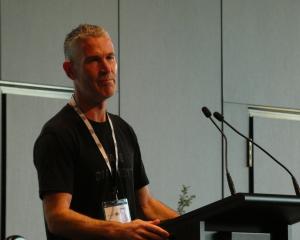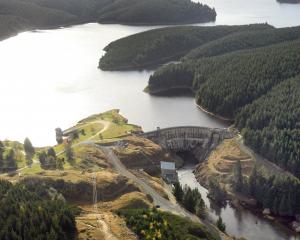
Associate Energy Minister Shane Jones is threatening to end the Electricity Authority if it doesn't "man up" and flex its authority.
He met with the authority Wednesday morning, following an announcement by forestry company Winstone Pulp International that it is planning to shut down its Tangiwai sawmill and Karioi pulp mill, resulting in 230 job losses.
"I said this is not the time for a pedestrian approach, and I really want them to man up and use their authority or they'll end up as roadkill.
"There is no point maintaining an electrical authority which is a key regulator if it's unwilling to flex its muscle or use the full powers in the legislation," Jones said.
He roasted the power companies over their skyrocketing prices.
"We have an energy sector where the rules and regulations reward those people who exploit scarcity. The gentailers have not invested in giving New Zealanders energy security by additional capacity," he said.
The authority declined RNZ's request for an interview, saying it would provide a statement, but failed to meet the deadline.
'It's a daily problem'
Etu Union's negotiation specialist Joe Gallagher is worried many manufacturers are only one big power spike away from also crumbling.
"It is a daily problem and we've seen this increasing trend that it gets to tipping point and it's all over in a flash. It's a really really worrying trend that seems to have really accelerated in past six months," he said.
He was particularly worried about Kaitaia's forestry company Juken New Zealand Limited, JNL.
"They face the same question with power and gas prices, they are a large employer in Kaitaia and it just underscores importance of these mills to these these communities and so everyone kind of.. it's a day by day prospect with these spot prices and way they fluctuate so wildly."
Kaitaia councillor Penetaui Kleskovic told RNZ that if JNL closed, it would be devastating as the company was the single largest employer in town.
"It'll be catastrophic in Kaitaia, many families in Kaitaia rely heavily on JNL," he said.
Kleskovic wants to see better government investment in the Far North's power supply.
"What we need is $100 million investment and over the next 20 to 25 years we can generate six billion dollars worth of electricity," he said.
Meridian, Contact respond
Meridian chief executive Neal Barclay said the power company was sharply focused on maintaining security of supply through a tight winter and investing heavily to grow New Zealand's renewable generation over the coming decades.
"Although they are few, it's an especially difficult period for those companies and for their staff that are exposed to high wholesale prices. We want to avoid large customers finding themselves in a similar situation, which is why we're supporting our business customers through this challenging time," he said.
Contact Energy said it acknowledged the electricity market challenges this winter.
"They are a direct result of a shortage of gas and a dry hydrological year. The energy system is in transition. In New Zealand, the reality is that we need 40 more power stations by 2035," they said.
"Our profit goes back into building the renewable energy infrastructure the country needs."













